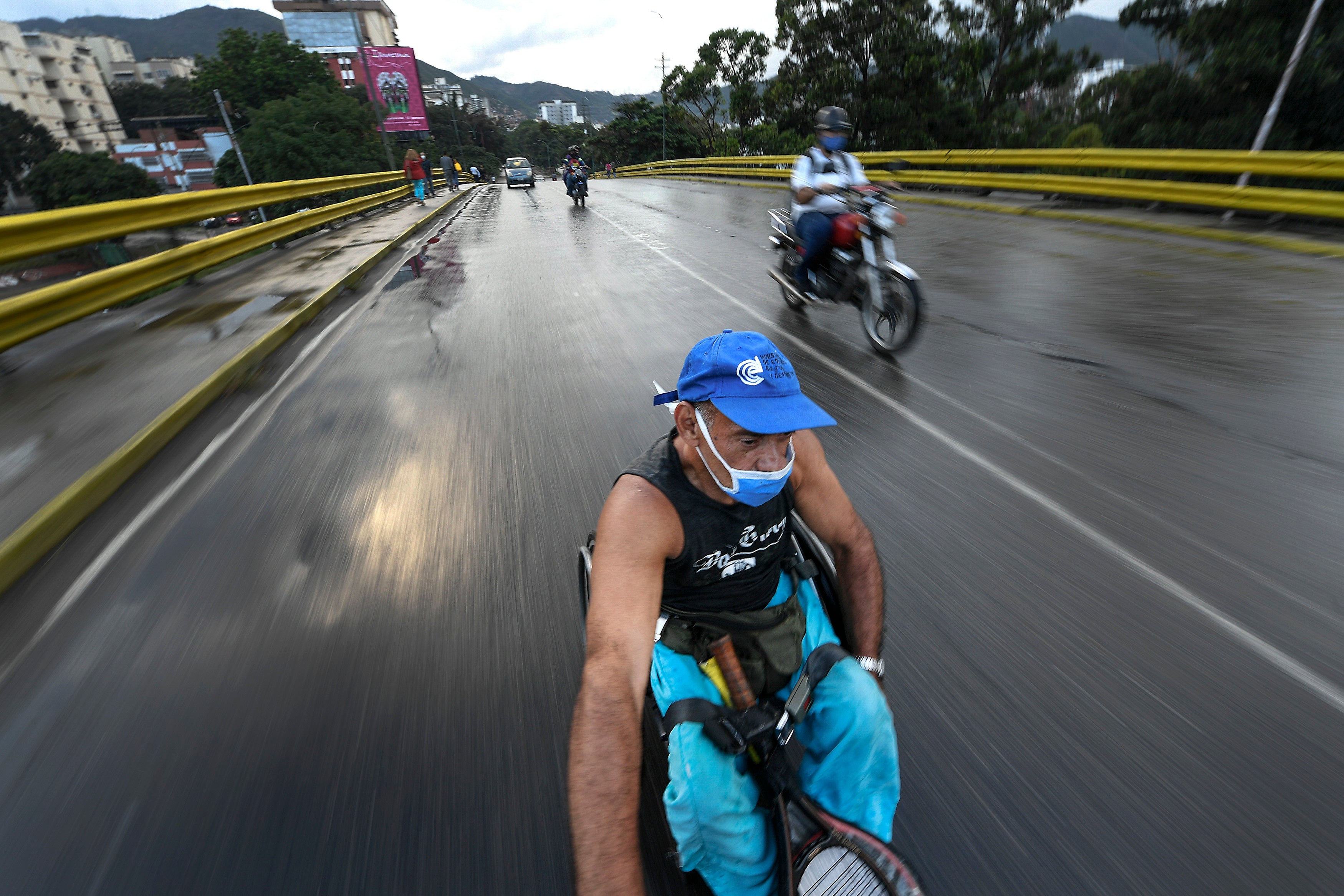Crisis-torn Venezuela a challenge for those in wheelchairs
Working, studying or even leaving one’s home can be a challenge for someone in a wheelchair in Venezuela

Your support helps us to tell the story
From reproductive rights to climate change to Big Tech, The Independent is on the ground when the story is developing. Whether it's investigating the financials of Elon Musk's pro-Trump PAC or producing our latest documentary, 'The A Word', which shines a light on the American women fighting for reproductive rights, we know how important it is to parse out the facts from the messaging.
At such a critical moment in US history, we need reporters on the ground. Your donation allows us to keep sending journalists to speak to both sides of the story.
The Independent is trusted by Americans across the entire political spectrum. And unlike many other quality news outlets, we choose not to lock Americans out of our reporting and analysis with paywalls. We believe quality journalism should be available to everyone, paid for by those who can afford it.
Your support makes all the difference.Working, studying or even leaving one’s home can be a challenge for someone in a wheelchair in Venezuela, where a once-lauded law defending their rights and requiring that buildings be adapted for their use has never been applied.
Such daily difficulties do not daunt Manuel Mendoza, a computer science administration graduate who through tennis and other wheelchair sports has found the strength and motivation to stay physically and mentally healthy. He has inspired others to get moving and encouraged them to begin the difficult journey of recovery from injury or trauma.
“All my life I’ve been an athlete; that is one of the things that has helped me overcome the disability,” said the 58-year-old Mendoza, who at age 8 had an accident that injured his spinal cord. “I have 50 years with a disability. ... I say disability because people insist on putting an adjective on it.”
One of Mendoza’s fights is to change the belief that people with disabilities cannot have professions.
He blamed the reluctance of some employers to hire on a lack of information. Perhaps they wonder, “How is he going to come here every day? How is he going to do the job if we give him the position?” he said, adding that many employers fear the person will call in sick frequently or not fulfil the task.
All we are asking is that “the law be followed,” said Mendoza, because the way it is now, when the person in a wheelchair leaves their house, “the war begins.”
They face a hostile environment on a daily basis, he said. Instead of rolling on ramps, they battle with steps or crooked pavement. If they must travel a long distance and there is no wheelchair-friendly transportation, they sometimes ask if they can hold on to the back of a motorcycle to pull them down the street. Having an adapted car or taxi is a luxury in a country where a salary may be the equivalent of $1 a month.
The government of the late President Hugo Chávez enacted the People with Disabilities Law in January 2007 to promote their rights. One of its article requires that public and private employers dedicate at least 5% percent of their total payroll to workers with permanent disabilities.
But application of the law remains on hold. Implementation has also been hurt by the inefficient management of public funds and the loss of government income following the collapse of world oil prices. Oil-export dependent Venezuela has experienced a 70% drop in oil revenues since Chávez died in 2013.
While many sidewalks in Venezuela are in ruins and shopping centers and buildings lack wheelchair ramps, sports has been a field where people in wheelchairs have seen progress.
“The benefits of sport for disabled people are many. It helps to better organize their minds, improves the response of the body’s physiological systems"... and prevents “depression, anxiety, psychosis, drug use,” said physiotherapist Williams Mederos.
“The response from an emotional point of view is extraordinary,” he said.